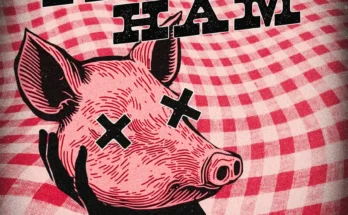In 1964, Pearl Cleage was a playwriting student at Howard University and a self-professed radical bohemian. “We were always marching on somebody,” she says with a laugh. When she started writing a play set during those turbulent years, however, she wanted to explore a different kind of world, one filled with people resistant to the type of change the civil rights movement would bring.
“People now talk about the ’60s as if every person alive was a radical marching down the street, and I know that was not true,” Cleage explains. “I definitely knew a lot of people who were frightened of the change. In the abstract, they knew it was a good thing. Intellectually, they knew it was a good thing. But they had made a place for themselves in the confines of the world as it was, and they were nervous (as people always are) at the changes that were coming so fast.”
Cleage also didn’t want the play to be too serious. “I want people to have a good time,” she says. “It’s actually a romantic comedy, which is new for me.”
The Nacirema Society Requests the Honor of Your Presence at a Celebration of Their First One Hundred Years marks Cleage’s fourth collaboration with the Alliance Theatre and her first with Jennings Hertz, Jr. Artistic Director Susan V. Booth. “My relationship with the Alliance began when Kenny Leon became the artistic director,” Cleage explains. “I had known Kenny for many years — we had been working together in much smaller theatres that were always trying to put enough money together to do a season.” When Leon discovered that the Alliance had money to commission new works, he asked Cleage if she had anything she wanted to develop. “I had just started working on Flyin’ West, so I said, ‘Absolutely!'” she remembers with a laugh. “I can’t think of a playwright in this world who’d say ‘no.'”
Flyin’ West premiered at the Alliance Theatre in 1992. When the show began to tour in 1994, Cleage realized that she could finally make a living as a playwright. Prior to that, she “did just about everything you can do that has to do with writing” to support herself while she wrote plays. She worked in public relations, advertising — even City Hall, where she wrote speeches for then-Mayor Maynard Jackson. She wrote two more plays for the Alliance Theatre — Blues for an Alabama Sky (1995) and Bourbon at the Border (1997) — and then unexpectedly found herself with a story in her head that was too large for the stage.
That idea became her first novel, What Looks Like Crazy on an Ordinary Day. When Oprah Winfrey made it one of her book club selections in 1998, Cleage became a New York Times best-selling author.
“It did really well, and they offered me the chance to write another [book],” Cleage remembers. Ten years later, Cleage had eight novels under her belt. But she wasn’t ready to leave the stage behind.
“At the heart of it, I’m a playwright,” Cleage says. “My mind tends to go to theatre if I give it permission to use whatever form it really wants. I think part of that is because of the collaboration. I love the fact that writing is such a solitary activity. But with theatre, once you’re done with the script, it becomes a collaborative experience; you have actors, directors, designers, producers and the audience, ultimately. You don’t know if a novel works or not unless someone stops you in the grocery store and says, ‘Oh, I love that book.’ But with a play, you know instantly, because you can hear people responding; you can hear if they laugh at the stuff you thought was funny … [or] cry if something bad happens to a character that you cared about.”
The death of Coretta Scott King inspired Cleage to write a short play, A Song for Coretta, which was produced by 7 Stages in 2008. “It reminded me of how much I had been missing theatre,” Cleage says. “So I finished the novel I was committed to and started working on Nacirema Society.”
Nacirema Society‘s main character, Grace Dunbar, is not supportive of the civil rights movement her granddaughter admires. “She is not happy that these wild radicals are going to mess up her cotillion by having demonstrations in the middle of it, so she’s trying to ignore history and go on with her life the way it’s always been,” Cleage says. “Which, as we know cannot happen. You cannot hold back history for a cotillion.”
To read more about Pearl Cleage, what inspires her and her advice for young artists, click here.



